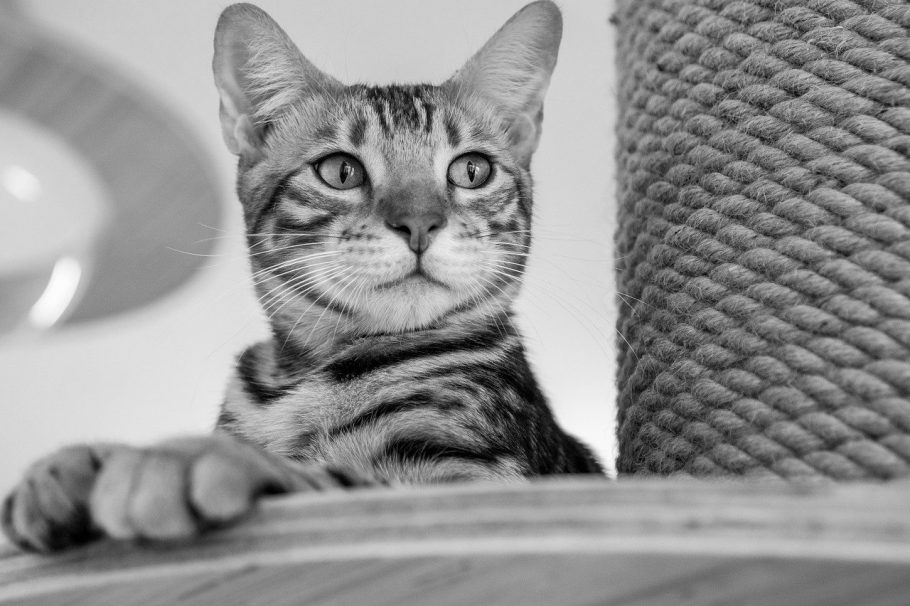Vaccinations are an essential part of cat care and can protect them from potentially deadly diseases. Rabies vaccination is mandatory in many states and can protect both cats and humans. Feline Leukemia Virus (FeLV) is a contagious virus that can cause cancer in cats, while Feline Immunodeficiency Virus (FIV) weakens their immune system. Feline Distemper (Panleukopenia) and Feline Herpesvirus (FHV) and Feline Calicivirus (FCV) vaccinations are also necessary to keep our cats healthy. Regular check-ups and boosters are essential to ensure that our cats remain protected against these diseases. Don’t neglect your cat’s health – speak to your veterinarian about the necessary vaccinations and booster schedules for your furry friend.
Rabies Vaccination
Rabies is a deadly virus that affects both cats and humans. It’s spread through the bite of an infected animal and attacks the nervous system, ultimately leading to death if left untreated. Vaccinating your cat against rabies is crucial to their well-being, and in many states, it’s mandatory by law. Your veterinarian can advise you on the necessary vaccination schedule for your cat. Rabies vaccinations are effective in preventing the disease, and administering them can protect not only your cat but also yourself and your loved ones.
Feline Leukemia Virus (FeLV) Vaccination
Feline Leukemia Virus (FeLV) is a viral infection that is highly contagious and can cause cancer in cats. The virus can be spread through cat-to-cat contact, as well as from a mother cat to her kittens. FeLV weakens the cat’s immune system, leaving them more vulnerable to other infections and diseases.
Vaccinating your cat against FeLV is important in reducing their risk of contracting the virus. It is recommended that all cats receive this vaccination, especially those that are more likely to come into contact with other cats, such as outdoor cats or cats living in multi-cat households.
FeLV vaccinations may require multiple doses, which can be given at regular intervals by your veterinarian. It is important to discuss with your vet about the necessary vaccination schedule and boosters to ensure your cat remains protected against this deadly virus.
Feline Immunodeficiency Virus (FIV) Vaccination
Feline immunodeficiency virus (FIV) weakens a cat’s immune system, leaving them more susceptible to other infections and illnesses. This virus is commonly spread through bites from infected cats, making outdoor cats especially at risk. While there is no cure for FIV, there is a vaccine available that can help protect cats against the virus. Speak to your veterinarian about whether your cat should receive this vaccination, particularly if they spend time outdoors or may come into contact with other cats.
Feline Distemper (Panleukopenia) Vaccination
Feline Distemper, also known as Panleukopenia, is a highly contagious viral disease that can be fatal to cats. The virus attacks multiple systems in a cat’s body, including the digestive, respiratory, and nervous systems. Symptoms may include fever, loss of appetite, vomiting, and diarrhea.
The good news is that vaccinations are available to help prevent Feline Distemper. It’s an essential vaccination for all kittens and cats. Vaccination schedules may vary depending on your cat’s age and health status, so it’s important to speak to your veterinarian to determine the appropriate schedule for your cat. Regular boosters are also necessary to ensure ongoing protection against the disease.
Prevention is key to keeping your cat healthy, so make sure to prioritize regular veterinary care and vaccinations for your furry friend.
Feline Herpesvirus (FHV) and Feline Calicivirus (FCV) Vaccination
Vaccinating your cat against Feline Herpesvirus (FHV) and Feline Calicivirus (FCV) is crucial because these respiratory diseases are highly contagious and can easily spread between cats through bodily fluids. FHV can cause symptoms such as sneezing, runny nose, and eye discharge, while FCV can cause flu-like symptoms such as fever, coughing, and ulcers in the mouth. Vaccinations against these viruses can help prevent your cat from getting sick and potentially developing more serious health issues. Be sure to discuss with your veterinarian about the necessary vaccination schedule for your cat’s health and well-being.
Boosters and Regular Check-ups
Vaccinations are a vital component of preventive care for cats, and require regular boosters to ensure adequate protection against deadly diseases. In addition to vaccinations, regular check-ups are essential to detect any potential health issues early on.
Consulting with your veterinarian about the necessary vaccination and booster schedules can help keep your cat healthy and happy. During regular check-ups, your vet can also provide general preventive care recommendations, such as proper nutrition and exercise, to maintain your cat’s overall health and well-being.
Overall, staying on top of your cat’s vaccinations and regular check-ups can help prevent illnesses and keep your furry friend in good health.




